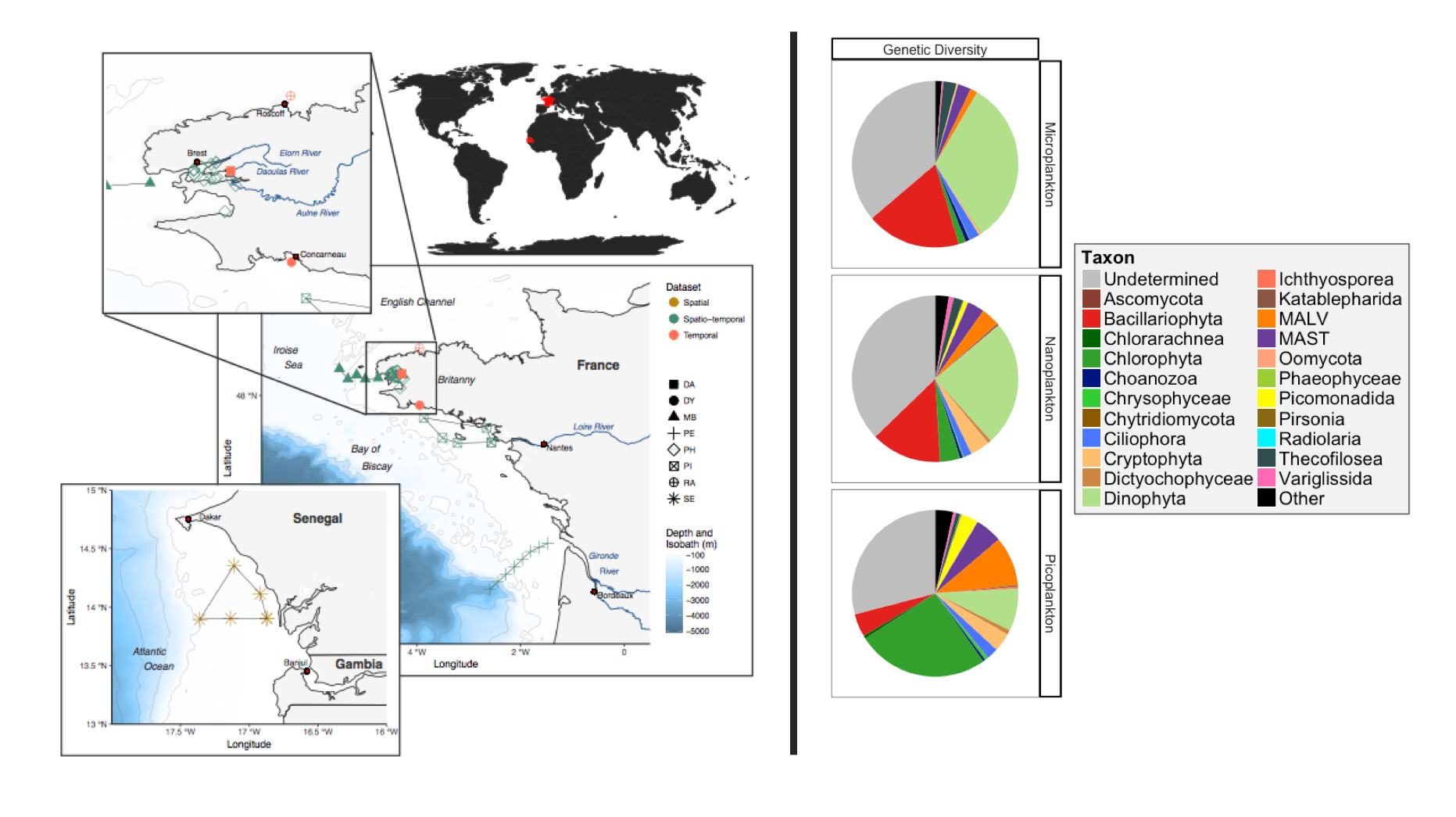Protist
Type of resources
Available actions
Topics
Keywords
Contact for the resource
Provided by
Years
Representation types
Update frequencies
status
Scale
-

A total number of 277 water samples were collected during distinct oceanographic cruises or at fixed stations across coastal systems of France and Senegal. The seawater samples were progressively filtered onto size-fractionated filters (representing micro, nano and pico-plankton). Metabarcoding of the V4 domain of the Eukaryotic 18S rDNA region was carried out to characterize the genetic diversity of the sampled communities. Genomic DNA was extracted following the DNA extraction kit Nucleospin Plant II (Macherey-Nagel) and the V4 markers were amplified with a taq polymerase (Phusion High-Fidelity PCR Master Mix with GC Buffer). Sequencing was performed by the Genotoul sequencing platform (get.genotoul.fr) with the Illumina MISeq method (2x250 bp). The present dataset gathers the different results issued from sequencing. This dataset was submitted to sequence cleaning, filtering, taxonomic assignment and OTU clustering, which resulted in a final dataset also presented.
-
RESOMAR is a national network whose main objective is to bring together studies and monitoring programmes conducted at the network’s stations and observatories (Wimereux, Luc/Mer, Dinard, Roscoff, Brest, Concarneau, Ile d'Yeu, La Rochelle, Arcachon, Anglet, Banyuls, Perpignan, Sète, Marseille, Villefranche / Mer). Based on benthic and plankton community monitoring programmes implemented by the stations, one of RESOMAR’s objectives is to use this biological information in order to answer scientific questions, for example concerning the factors which control the distribution and abundance of organisms on different spatial and temporal scales. This monitoring information, the characteristics of which vary depending on the station (number of sites, frequency, continuous monitoring or not, communities observed, taxonomic resolution, observation methods, etc.) is brought together in two databases (RESOMAR/BENTHOS and RESOMAR/PELAGOS), which are currently being developed. The RESOMAR-PELAGOS database hosts biological data obtained by the pelagic aspects of RESOMAR (around fifteen programmes as of September 2012): http://abims.sb- roscoff.fr/pelagos/ This database in particular brings together observation data (long-term series, inventories, spatial studies, etc.).
 Catalogue PIGMA
Catalogue PIGMA